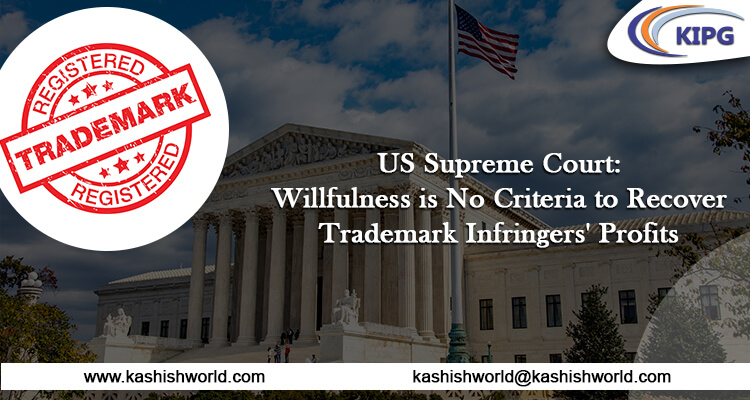
Generally, the US Supreme Court rarely weighs in on the Trademark Law and infringement litigation, in specific. However, the highest court in the federal judiciary of the US has quite recently made it a lot more convenient to get compensation in the Trademark Infringement lawsuits.
On 23rd April 2020, the US Supreme Court unanimously ruled in Romag Fasteners, Inc. v. Fossil, Inc. that a trademark holder is not required to provide evidence corresponding to the infringer’s state of mind or intention as a precondition for recovering the profits earned from the infringer’s unauthorized use of the trademark.
Before this ruling, some lower courts, such as the 2nd Circuit and the 9th Circuit, required a trademark holder to prove in court that an infringer used a Registered Trademark while knowing that the same was owned by another person, to recover monetary damages. Other courts, including the 3rd Circuit and the 5th Circuit, never required evidence of such knowledge. However, the US Supreme Court’s ruling has now made the law consistent throughout the country.
What does this ruling imply?
In general, trademark holders own the exclusive right to use their registered trademark for some specific products and services. For enforcing that exclusive right, they can sue the ones who try to make unauthorized use of their registered trademark. The remedies available to the trademark holders include a court order corresponding to putting an end to the misuse of their registered trademark and monetary damages, in some scenarios. When it comes to awarding monetary damages in the trademark infringement lawsuits, the courts have been quite inconsistent until now, that too, in particular, corresponding to infringer’s profits earned from the unauthorized use of the registered trademark.
The US Supreme Court’s ruling has now made it crystal clear that the willfulness of a trademark infringer is not a prerequisite or firm requirement for the trademark holders to obtain their profits in trademark infringement litigation. Therefore, the trademark infringers who don’t know that a trademark is owned by someone else or that their use violates the Trademark Rights of another person may still be liable to pay back the profits they earn from the unauthorized use.
The Supreme Court has also recognized that the use of a registered trademark while knowing about the trademark holder’s rights is a highly crucial factor in determining whether to award monetary damages or not and, if yes, then what would be the total amount of such an award. However, the court has eliminated all requirements concerning willful trademark infringement for the profit remedy to be available.
Things to keep in mind
In the first place, this ruling focuses on the dire need to perform diligent trademark clearance searches before going ahead with adopting a new trademark and using the same for your products or services, or before planning to expand your already existing registered trademark to new products or services. In the second place, the trademark holders can now seek the infringer’s profits as well, in addition to their losses, in all cases of trademark infringement.

